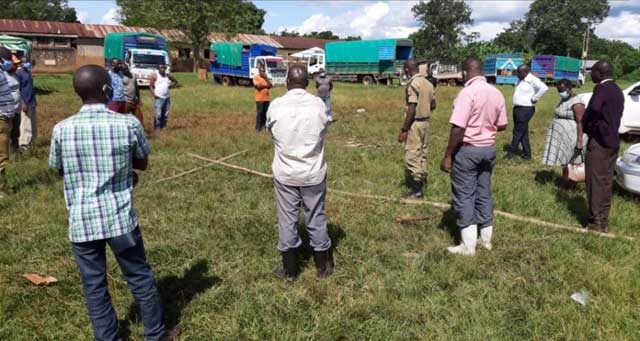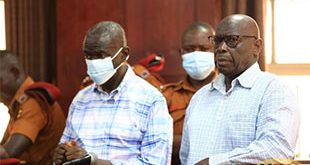
Kayunga, Uganda | THE INDEPENDENT | A Woman who was found wandering in a designated parking yard for long-distance trucks, last evening has been quarantined in Kayunga District.
Florence Nakayenza, 27, a resident of Mpumudde-Kyampisi Kangulumira sub-county was sent to the quarantine centre at Namagabi primary school after recklessly touching a truck without any protective gear. She will spend 14-days in quarantine.
The head of Kayunga District COVID-19 Task Force Margret Kikomeko Mwanamoiza says that Nakayenza’s isolation is a precautionary measure, partly intended to dissuade women from coming into contact with truck drivers, at a time when a number of them have tested positive to coronavirus disease-COVID-19.
Uganda is currently struggling with an increase in COVID-19 cases mainly among truck drivers, travelling from Kenya and Tanzania. While these are testing upon entering Ugandan territory, they are left to proceed with their journey while waiting for the results and tracked by URA and Ministry of Health teams, in case the result returns positive.
Mwanamoiza says that the taskforce in Kayunga has cancelled all the major stop centres including Kayonza, Nazigo, Kamuli and created a new centre at Maligita Primary School Playground in Kangulumira for the long-haul trucks. The aim is to protect residents from getting in contact with drivers.
Tom Sserwanga, the District Chairperson warns that the authorities will halt cross-border trucks from stopping in Kayunga if they don’t stop getting in contact with residents at their new parking centre.
One of the truck drivers from Kenya Abubaker Oketch notes that it is hard for drivers to invite women at their centres during this period appealing to the authorities to ensure that residents are further restricted from accessing their zones.
“It is the worker of leaders to ensure that they don’t access our zones since we are also busy enough to do that work,” Oketch notes.
The Kayunga Deputy Chief Administrative Officer Benson Otim notes that much as the truck drivers are tested and examined at border points, they can also get the disease from the people they associate with in the community.
********
URN
 The Independent Uganda: You get the Truth we Pay the Price
The Independent Uganda: You get the Truth we Pay the Price


